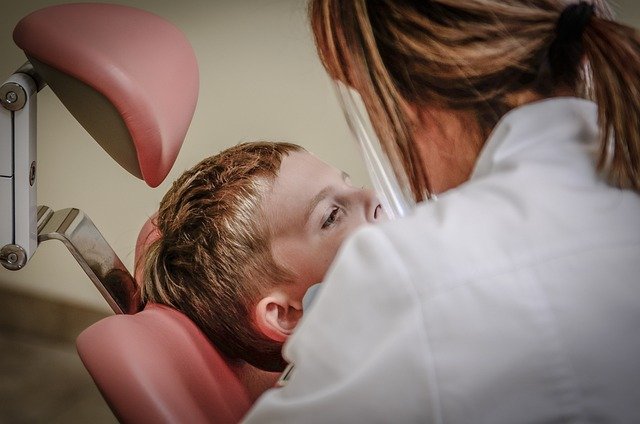Choosing a Senior-Friendly Dentist in 2025: What to Look For
Dental care becomes even more important as we age—but not every dentist is equipped to meet the unique needs of older adults. From managing dentures and dry mouth to treating gum disease or age-related tooth sensitivity, senior-friendly dentists specialize in providing gentle, personalized care. In 2025, the best dentists for seniors offer accessible offices, advanced technology, and compassionate communication tailored to aging patients. This guide will help you know what to look for when choosing a senior dentist, so you or your loved ones can maintain a healthy, confident smile well into the golden years.

As we age, our dental needs evolve significantly, requiring practitioners who understand the complexities of senior oral health. Age-related changes in medication use, decreased saliva production, and increased risk of periodontal disease create unique challenges that demand specialized knowledge and approach. The right dental practice will recognize these factors and adapt their treatment plans accordingly, ensuring both comfort and effectiveness in care delivery.
What Makes a Dentist Truly Senior-Friendly?
A genuinely senior-friendly dental practice goes beyond basic dental services to address the comprehensive needs of older adults. These practitioners understand that seniors often take multiple medications that can affect oral health, experience changes in taste and saliva production, and may have underlying health conditions requiring special considerations. They maintain updated knowledge about how conditions like diabetes, heart disease, and osteoporosis impact dental treatment decisions. Additionally, they demonstrate patience and clear communication, taking time to explain procedures and answer questions thoroughly.
Which Special Services Should Senior Dental Practices Offer?
Specialized services for seniors typically include comprehensive periodontal care, as gum disease becomes more prevalent with age. Many practices offer sedation dentistry options to help anxious patients feel more comfortable during procedures. Denture services, including repairs, adjustments, and implant-supported options, are essential offerings. Some practices provide mobile dental services for seniors with mobility limitations or those in assisted living facilities. Preventive care programs focusing on dry mouth management, fluoride treatments, and oral cancer screenings are also valuable services that address common senior concerns.
How Important is Office Accessibility and Comfort?
Physical accessibility plays a crucial role in senior dental care. The ideal practice features ground-floor access or reliable elevators, wide doorways for wheelchairs and walkers, and accessible parking spaces close to the entrance. Inside the office, comfortable seating in waiting areas, well-lit spaces, and easy-to-navigate layouts reduce stress and physical strain. Treatment rooms should accommodate mobility aids, and staff should be trained to assist patients with transfers when necessary. These physical considerations directly impact a senior’s ability to receive consistent dental care.
What Should You Ask During the Initial Consultation?
Key questions during your first visit should cover the dentist’s experience with senior patients and their approach to age-related oral health issues. Inquire about their policy regarding medical history review and coordination with other healthcare providers. Ask about pain management options, appointment scheduling flexibility, and emergency care availability. Understanding their approach to treatment planning, including how they prioritize procedures and discuss alternatives, helps ensure alignment with your preferences and needs. Questions about insurance acceptance and payment options are also important for financial planning.
What Are the Latest Technologies Benefiting Senior Dental Care?
Modern dental technology offers significant advantages for senior patients. Digital X-rays provide detailed images with reduced radiation exposure, while intraoral cameras allow patients to see problem areas clearly, improving understanding and treatment acceptance. Laser therapy offers gentler treatment options for gum disease with reduced discomfort and faster healing times. Computer-aided design and manufacturing systems enable same-day crowns and restorations, reducing the number of appointments needed. Electric toothbrushes and water flossers designed for seniors with arthritis or limited dexterity help maintain oral hygiene between visits.
| Service Type | Typical Cost Range | Key Considerations |
|---|---|---|
| Routine Cleaning | $75-$200 | May require more frequent visits |
| Periodontal Treatment | $500-$4,000 | Varies by severity and extent |
| Dentures (Complete Set) | $1,200-$8,000 | Quality and materials affect pricing |
| Dental Implants | $3,000-$6,000 per tooth | Long-term investment option |
| Emergency Visits | $200-$600 | Availability varies by practice |
Prices, rates, or cost estimates mentioned in this article are based on the latest available information but may change over time. Independent research is advised before making financial decisions.
Choosing the right dental practice for senior care involves evaluating multiple factors beyond basic dental services. The combination of specialized knowledge, appropriate technology, accessible facilities, and compassionate care creates an environment where seniors can maintain optimal oral health. Taking time to research and visit potential practices ensures you find a dental home that will support your oral health needs as they continue to evolve with age.
This article is for informational purposes only and should not be considered medical advice. Please consult a qualified healthcare professional for personalized guidance and treatment.




